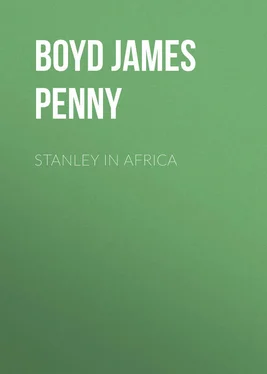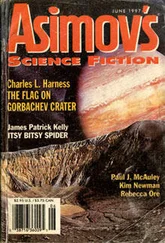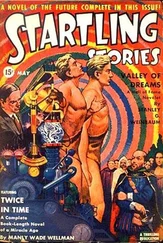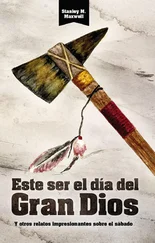James Boyd - Stanley in Africa
Здесь есть возможность читать онлайн «James Boyd - Stanley in Africa» — ознакомительный отрывок электронной книги совершенно бесплатно, а после прочтения отрывка купить полную версию. В некоторых случаях можно слушать аудио, скачать через торрент в формате fb2 и присутствует краткое содержание. Жанр: foreign_antique, foreign_prose, на английском языке. Описание произведения, (предисловие) а так же отзывы посетителей доступны на портале библиотеки ЛибКат.
- Название:Stanley in Africa
- Автор:
- Жанр:
- Год:неизвестен
- ISBN:нет данных
- Рейтинг книги:3 / 5. Голосов: 1
-
Избранное:Добавить в избранное
- Отзывы:
-
Ваша оценка:
- 60
- 1
- 2
- 3
- 4
- 5
Stanley in Africa: краткое содержание, описание и аннотация
Предлагаем к чтению аннотацию, описание, краткое содержание или предисловие (зависит от того, что написал сам автор книги «Stanley in Africa»). Если вы не нашли необходимую информацию о книге — напишите в комментариях, мы постараемся отыскать её.
Stanley in Africa — читать онлайн ознакомительный отрывок
Ниже представлен текст книги, разбитый по страницам. Система сохранения места последней прочитанной страницы, позволяет с удобством читать онлайн бесплатно книгу «Stanley in Africa», без необходимости каждый раз заново искать на чём Вы остановились. Поставьте закладку, и сможете в любой момент перейти на страницу, на которой закончили чтение.
Интервал:
Закладка:
Owing to the fact that the Congo threads its cataract section with immense falls and through deep gorges, this part of Stanley’s journey had to be made at some distance from its channel, and with only glimpses of its turbid waters, over lofty ridges, through deep grass-clothed or densely forested valleys, and across various tributaries, abounding in hippopotami and other water animals. Many fine views were had from the mountains of Ngoma. He decided that a road could be made from Vivi to Isangila, a distance of 52 miles, and that from Isangila navigation could be resumed on the Congo. And this road he now proceeded to make, for, though years before in his descent of the river he had dragged many heavy canoes for miles overland, and around similar obstructions, he now had heavier craft to carry, and objects of commerce in view. He had 106 men at his disposal at Vivi, who fell to work with good will, cutting down the tall grass, removing boulders, corduroying low grounds, bridging streams, and carrying on engineering much the same as if they were in a civilized land – the natives helping when so inclined. The workmen had their own supplies, which were supplemented by game, found in abundance, and were molested only by the snakes which were disturbed by the cutting and digging; of these, the spitting snake was the most dangerous, not because of its bite, but because it ejects its poison in a stream from a distance of six feet into the face and eyes of its enemy. The ill effects of such an injection lasts for a week or more. The tall grass was infested with the whip-snake, the bulky python was found near the streams, while a peculiar green snake inhabited the trees of the stony sections and occasionally dangled in unpleasant proximity to the faces of the workmen.
As this road-making went on, constant communication was kept up with Vivi. The steamers were mounted on heavy wagons, and were drawn along by hand-power as the road progressed. Stores and utensils of every kind were similarly loaded and transported. The mules and asses, belonging to the expedition, were of course brought into requisition, but in nearly all cases their strength had to be supplemented by the workmen. Accidents were not infrequent, but fatal casualties were rare. Some died of disease, yet the general health was good. One of the coast natives fell a victim to an enraged hippopotamus, which crushed him and his bark as readily as an egg-shell.
Thus the road progressed to Makeya Manguba, a distance of 22 miles from Vivi, and after many tedious trips to and fro, all the equipments of the expedition were brought to that point. The time consumed had been about five months – from March to August. Here the steel lighters were brought into requisition, and the equipments were carried by steam to a new camp on the Bundi river, where road making was even more difficult, because the forests were now dense and the woods – mahogany, teak, guaiacum and bombax – very hard. Fortunately the natives kept up a fine supply of sweet potatoes, bananas, fowls and eggs, which supplemented the usual rice diet of the workmen. It was with the greatest hardship that the road was completed between the Luenda and Lulu rivers, so thick were the boulders and so hard the material which composed them. The Europeans all fell sick, and even the natives languished. At length the Bula river was reached, 16 miles from the Bundi, where the camp was supplied with an abundance of buffalo and antelope meat.
The way must now go either over the steep declivities of the Ngoma mountains, or around their jagged edges, where they abut on the roaring Congo. The latter was chosen, and for days the entire force were engaged in cutting a roadway along the sides of the bluffs. This completed, a short stretch of navigable water brought them to Isangila, 52 miles from Vivi. It was now January 2, 1881. Thither all the supplies were brought, and the boats were scraped and painted, ready for the long journey to Manyanga. Stanley estimated that all the goings and comings on this 52 miles of roadway would foot up 2,352 miles of travel; and it had cost the death of six Europeans and twenty-two natives, besides the retirement of thirteen invalids. Verily, it was a year dark with trial and unusual toil. But the cataracts had been overcome, and rest could be had against further labors and dangers.
The little steel lighters are now ready for their precious loads. In all, there has been collected at Isangila full fifty tons of freight, besides wagons and the traveling luggage of 118 colored carriers and attendants and pioneers. It is a long, long way to Manyanga, but if the river proves friendly, it ought to be reached in from seventy to eighty days. The Congo is three-quarters of a mile wide, with rugged shores and tumultuous currents. The little steamers have to feel their way, hugging the shores in order to avoid the swift waters of the outer channels, and starting every now and then with their paddles the drowsy crocodiles from their habitat. The astonished creatures dart forward, at first, as if to attack the boats, but of a sudden disappear in the flood, to rise again in the rear and give furious chase at a distance they deem quite safe. This part of the river is known as Long Reach. These reaches, or stretches, some of them five miles long, are expansions of the river, between points of greater fall, and are more easily navigable than where the stream narrows or suddenly turns a point. The cañon appearance of the shores now begins to disappear, and extensive grass-grown plains stretch occasionally to the water’s edge.
At the camp near Kololo Point, where the river descends swiftly, the expedition was met by Crudington and Bentley, two missionaries, who were fleeing in a canoe from the natives of Kinshassa, where they had been surrounded by an armed mob and threatened with their lives. They were given protection and sent to Isangila. Stanley had now to mourn the loss of his most trustworthy messenger, Soudi. He had gone back to Vivi for the European mail and on the way had met a herd of buffaloes; selecting the finest, he discharged his rifle at it and killed it, as he thought. But when he rushed up to cut its jugular vein, the beast arose in fury, and tossed and mangled poor Soudi so that he died soon after his companions came to his rescue.
Stretch after stretch of the turbulent Congo is passed, and camp after camp has been formed and vacated. At all camps, where practicable, the natives have been taken into confidence, and the intent of the expedition made known. With hardly an exception they fell into the spirit of the undertaking, and gladly welcomed the opportunity to open commerce with the outer world. The Nzambi rapids now offer an obstacle to navigation, but soon a safe channel is found, and a magnificent stretch of water leads to a bay at the mouth of the Kwilu river, a navigable stream, with a depth of eight feet, a width of forty yards and a current of five miles an hour. The question of food now became pressing. Each day the banks of the river were scoured for rations, by gangs of six men, whose duty it was to purchase and bring in cassava, bread, bananas, Indian corn, sweet potatoes, etc., not forgetting fowls, eggs, goats, etc., for the Europeans. But these men found it hard work to obtain fair supplies.
By April 7th the camp was at Kimbanza opposite the mouth of the Lukunga and in the midst of a land of plenty, and especially of crocodiles, which fairly infest the river and all the tributaries thereof. Here, too, are myriads of little fish like minnows, or sardines, which the natives catch in great quantities, in nets, and prepare for food by baking them in the sun. The population is quite dense, and of the same amiable mood, the same desire to traffic, and the same willingness to enter into treaties, as that on the river below.
Further up are the Ndunga people and the Ndunga Rapids, where the river is penned in between high, forbidding walls and where nature has begrudged life of every kind to the scene. But out among the villages all is different. The people are thrifty and sprightly. Their markets are full of sweet potatoes, eggs, fish, palm-wine, etc., and the shapely youths, male and female, indulge in dances which possess as much poetry of motion as the terpsichorean performances of the more highly favored children of civilization.
Читать дальшеИнтервал:
Закладка:
Похожие книги на «Stanley in Africa»
Представляем Вашему вниманию похожие книги на «Stanley in Africa» списком для выбора. Мы отобрали схожую по названию и смыслу литературу в надежде предоставить читателям больше вариантов отыскать новые, интересные, ещё непрочитанные произведения.
Обсуждение, отзывы о книге «Stanley in Africa» и просто собственные мнения читателей. Оставьте ваши комментарии, напишите, что Вы думаете о произведении, его смысле или главных героях. Укажите что конкретно понравилось, а что нет, и почему Вы так считаете.












